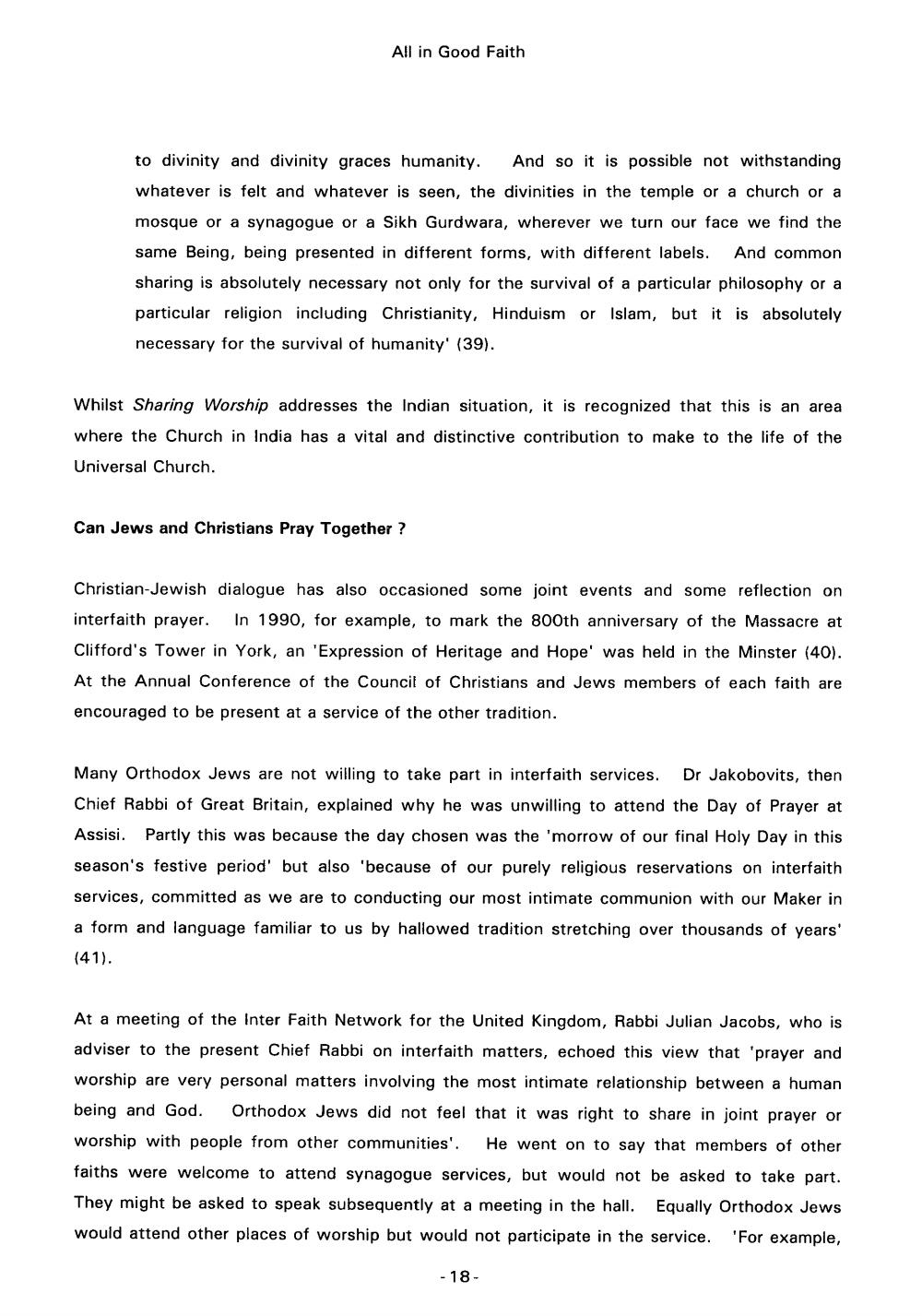________________
All in Good Faith
to divinity and divinity graces humanity. And so it is possible not withstanding whatever is felt and whatever is seen, the divinities in the temple or a church or a mosque or a synagogue or a Sikh Gurdwara, wherever we turn our face we find the same Being, being presented in different forms, with different labels. And common sharing is absolutely necessary not only for the survival of a particular philosophy or a particular religion including Christianity, Hinduism or Islam, but it is absolutely necessary for the survival of humanity' (39).
Whilst Sharing Worship addresses the Indian situation, it is recognized that this is an area where the Church in India has a vital and distinctive contribution to make to the life of the Universal Church.
Can Jews and Christians Pray Together?
Christian-Jewish dialogue has also occasioned some joint events and some reflection on interfaith prayer. In 1990, for example, to mark the 800th anniversary of the Massacre at Clifford's Tower in York, an 'Expression of Heritage and Hope' was held in the Minster (40). At the Annual Conference of the Council of Christians and Jews members of each faith are encouraged to be present at a service of the other tradition.
Many Orthodox Jews are not willing to take part in interfaith services. Dr Jakobovits, then Chief Rabbi of Great Britain, explained why he was unwilling to attend the Day of Prayer at Assisi. Partly this was because the day chosen was the 'morrow of our final Holy Day in this season's festive period' but also 'because of our purely religious reservations on interfaith services, committed as we are to conducting our most intimate communion with our Maker in a form and language familiar to us by hallowed tradition stretching over thousands of years' (41).
At a meeting of the Inter Faith Network for the United Kingdom, Rabbi Julian Jacobs, who is adviser to the present Chief Rabbi on interfaith matters, echoed this view that 'prayer and worship are very personal matters involving the most intimate relationship between a human being and God. Orthodox Jews did not feel that it was right to share in joint prayer or worship with people from other communities'. He went on to say that members of other faiths were welcome to attend synagogue services, but would not be asked to take part. They might be asked to speak subsequently at a meeting in the hall. Equally Orthodox Jews would attend other places of worship but would not participate in the service. 'For example,
-18




